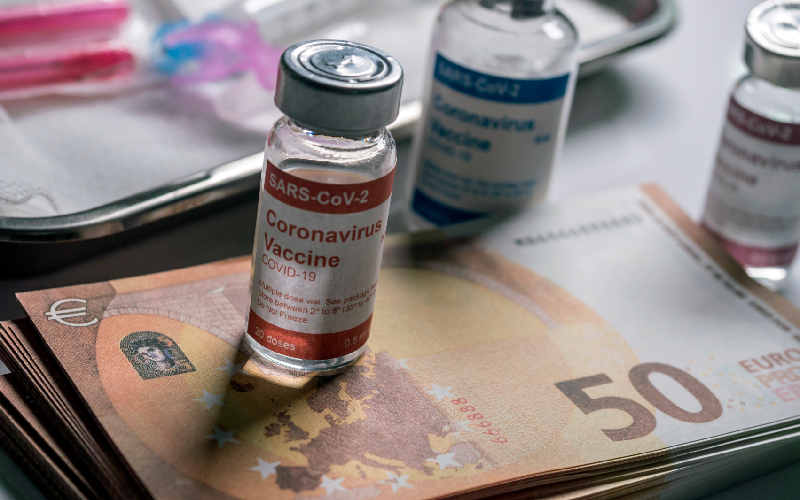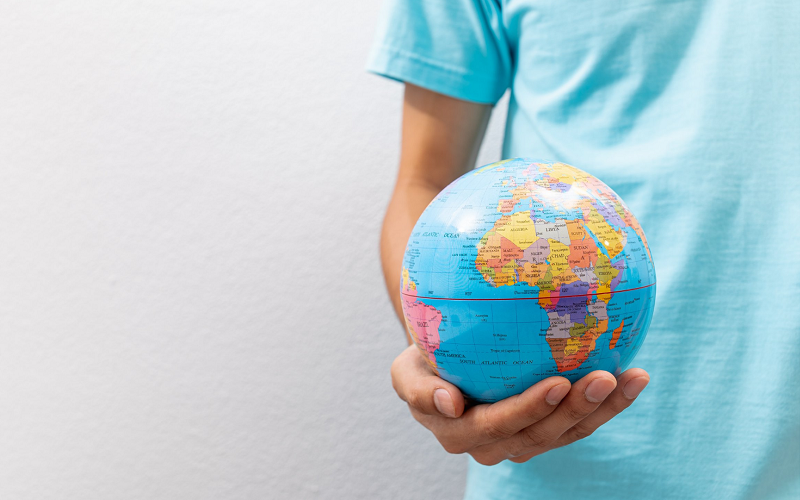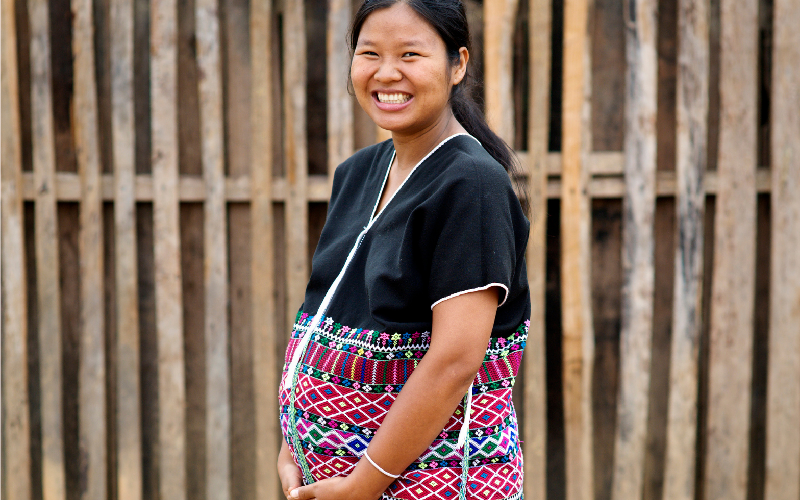
Waive Vaccine Intellectual Property Rights Now!

Waive Vaccine Intellectual Property Rights Now
News
Nov 25, 2021
In the current global pandemic, vaccine equity requires more than supply; it requires fair and timely access to vaccination for all countries, regardless of income level, infrastructure, political context, or stage of economic development. Yet people living in low- and middle-income countries remain far less likely to be vaccinated than those in high-income countries, even when they are in the highest clinical-risk groups or frontline health and care workers.
COVID-19 vaccines significantly reduce severe illness, mortality, symptom duration, and the risk of transmission. Vaccination remains the most effective tool for controlling the pandemic. When virus circulation is not adequately controlled, the risk of new vaccine-resistant variants increases, prolonging the pandemic for everyone.
Achieving global vaccine equity, therefore, depends on urgent structural action, including a decision to waive intellectual property protections on vaccines that currently restrict production and access.
Vaccine Inequity Is a Structural Failure, Not a Supply Problem
Current global delivery mechanisms are necessary but insufficient
For low- and middle-income countries, the primary mechanism for COVID-19 vaccine access is the vaccine pillar of the WHO Access to COVID-19 Tools Accelerator (ACT-A), specifically COVAX. COVAX forms a central part of the WHO Preparedness and Response Plan for 2021–22 and aims to deliver two billion doses to 98 self-financing countries and 92 of the lowest-income countries.
We commend COVAX for its vision, expertise, and international collaboration. However, it was never intended to be the sole solution for global COVID-19 vaccine provision. Without complementary measures, particularly those that address production constraints, COVAX alone cannot close the equity gap.
High-income countries must meet their existing commitments
High-income countries have committed to delivering their fair share of vaccines, yet to date, only Norway has fulfilled this obligation. Delays and shortfalls undermine global vaccination efforts and perpetuate inequitable access.
Donation-based models cannot deliver sustainable vaccine equity
Relying on vaccine donations from wealthy countries is neither sustainable nor sufficient to meet global demand. Even if all pledges were honoured on time, this approach leaves most of the world dependent on surplus supply. It also creates a risk of “vaccine pollution,” including waste, expired doses, or the dumping of near-expiry products in low- and middle-income countries and international programs.
Why Waiving Vaccine Intellectual Property Is Essential
Equity of capability, not charity
Low- and middle-income countries have extensive experience delivering mass vaccination programs and conducting vaccination trials in challenging conditions. Assertions that these countries cannot manufacture vaccines to international quality standards are unfounded and reflect neo-colonial and paternalistic assumptions. India, for example, is the world’s largest vaccine producer.
Commercial protectionism by major pharmaceutical companies, supported by some governments, has reinforced a narrative that limits local production capacity. To correct this imbalance, governments must waive intellectual property rights on vaccines that restrict technology transfer and scale-up.
Export restrictions further constrain global access
Several countries, including the United States, China, Japan, and South Korea, currently maintain export restrictions on vaccines and/or essential raw materials. These restrictions disrupt global supply chains and disproportionately affect vaccination programs in low- and middle-income countries.
Public health priorities, not commercial interests, should guide decisions on vaccine retention and export. Removing unwarranted export restrictions is critical to maintaining uninterrupted global vaccine production.
Global production capacity must expand beyond emergency measures
Pandemic vaccination should not rely on ad-hoc donations or temporary coalitions. While there is sufficient global capacity to distribute vaccines immediately, the current system lacks a scalable, geographically distributed supply chain capable of responding to ongoing and future pandemics.
Optimizing alternative approaches (such as donations, improved logistics, voluntary licensing, or regulatory concessions) without addressing intellectual property barriers will not deliver vaccine coverage equivalent to that of high-income countries before at least the end of 2022.
There are enough vaccine doses to fully vaccinate everyone. Supply remains artificially constrained because the Trade-Related Aspects of Intellectual Property Rights (TRIPS) agreement allows a small number of pharmaceutical companies to monopolise production and control global supply chains. This is why the decision to waive intellectual property rights on vaccines is central to achieving timely and equitable access.
The Case for a TRIPS Waiver Now
A TRIPS waiver enables local production and faster access
Implementing a Trade-Related Intellectual Property Rights (TRIPS) waiver is essential to allow more countries to produce vaccines locally and respond effectively to public health needs. The proposal is both achievable and legally grounded in the Doha Declaration of 2001, which affirms the right of World Trade Organization (WTO) members to use TRIPS flexibilities to protect public health and ensure access to medicines for all—including vaccines.
A decision to waive vaccine intellectual property is consistent with international law and existing WTO provisions.
Commercial protectionism has no place in a global health emergency
Public funding has played a substantial role in vaccine research, development, and deployment. In this context, continued commercial protectionism is indefensible. A TRIPS waiver does not eliminate compensation for manufacturers; companies can still receive fair payment for their products and expertise.
Allowing companies to set prices that are unaffordable for many people worldwide fuels public distrust and strengthens vaccine hesitancy narratives. Waiving vaccine intellectual property rights helps governments and manufacturers address these concerns and restore public confidence.
The TRIPS waiver is a step toward stronger multilateral solutions
A TRIPS waiver is not a permanent solution, but it is an essential step toward building more effective and equitable multilateral partnerships. It would expand global manufacturing capacity and strengthen the collective response to the current COVID-19 pandemic.
Longer-term reforms to the intellectual property system must follow.
Reforming the Future Intellectual Property Framework for Vaccines
Structural change is required for all current and future SARS-CoV-2 vaccines. More permanent solutions should be pursued through the proposed Global Treaty for Pandemic Preparedness, to be discussed at the World Health Assembly Special Session in November 2021. Implementation will require coordinated action through the United Nations and relevant international bodies, including the World Health Organization and the World Trade Organization.
Conclusion: Global Coverage Determines Global Safety
Delays in achieving adequate global COVID-19 vaccination coverage will prolong the pandemic for all countries and increase the risk of new, high-consequence variants. The evidence is clear: we will not be free of this virus until we are all free of it.
The decision to waive vaccine intellectual property is not only a legal and economic issue—it is a public health imperative.
About this statement
This text summarizes the main arguments from the full statement on the proposed waiver of the Trade-Related Aspects of Intellectual Property Rights (TRIPS Agreement) and related vaccine equity issues.
Written by Alison McCallum, Abbe Brown, Meri Koivusalo, and John Middleton for the Association of Schools of Public Health in the European Region (ASPHER) COVID-19 Task Force, the Global Network for Academic Public Health, and the World Federation of Public Health Associations.
The Global Network for Academic Public Health and WFPHA have issued a statement in support of waiving intellectual property rights on COVID-19 vaccines to increase global vaccine equity.








Recent Comments